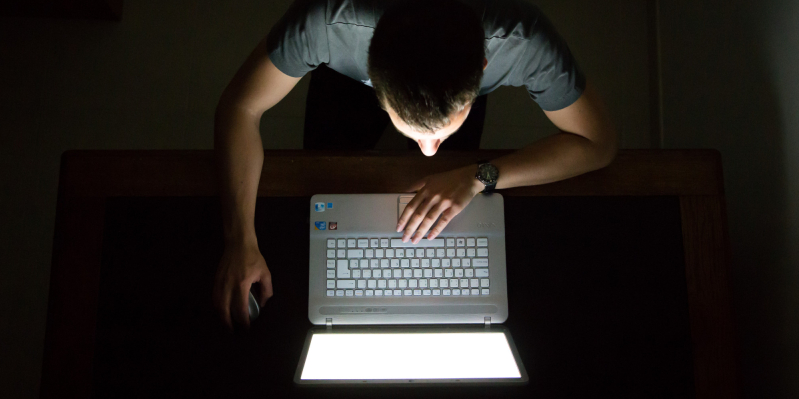
In an unprecedented move, Utah Gov. Gary R. Herbert will sign two measures declaring pornography a "public health hazard" and promise to combat the "sexually toxic environment" it creates.
According to CNN, Herbert is expected to make one resolution and one bill law Tuesday morning after the measures passed the state's legislature earlier this year.
The resolution calls for increased "education, prevention, research, and policy change at the community and societal level," to combat pornography, because it is "leading to a broad spectrum of individual and public health impacts and societal harms."
It cites "detrimental effects" on XXX users including biological addiction, changes in brain development, emotional illnesses and difficulty maintaining relationships.
The resolution also says pornography "equates violence toward women and children with sex and pain with pleasure, which increases the demand for sex trafficking, prostitution, child sexual abuse images, and child pornography."
USA Today notes that the resolution was introduced by Republican state Senator Todd Weiler in January 2015, to battle the "pornography epidemic harming" the state and the country; a Harvard Business School professor's 2009 study found that Utah state was the No. 1 buyer of adult films.
At the time, Weiler contended that the resolution is not a ban on porn or an attack on masturbation, but the first steps toward creating a plan to protect children and families from its negative effects.
Jon Cox, spokesman for the Republican governor, said the point of the resolution is to raise awareness and education. "We want Utah youths to understand the addictive habits" of porn that are "harmful to our society."
In turn, the bill, entitled "Reporting of Child Pornography," requires that computer technicians who find child pornography during their work should report it to law enforcement officials. The bill further stipulates that "the willful failure to report the child pornography" would be a class B misdemeanor.
"Due to advances in technology and the universal availability of the Internet, young children are exposed to what used to be referred to as hard core, but is now considered mainstream, pornography at an alarming rate," reads the bill in part.
The move has been praised by a number groups, including the Utah Coalition Against Pornography, who on its Facebook page encouraged people to head to the Capitol and "celebrate and recognize this historic moment!"
Pornography doesn't just affect the secular world: A 2014 study by Barna Group found that seventy-seven percent of Christian men ages 18-30 and 55 percent of married Christian men view pornography each month. A more recent Barna Group study showed that 21 percent of youth pastors and 14 percent of pastors struggle with porn. It further noted that 67 percent of young men and 49 percent of young women consider viewing porn to be acceptable behavior.
In a recent article posted on his website titled "Why Porn Kills Sex," Russell Moore, president of the Ethics & Religious Liberty Commission of the Southern Baptist Convention, argued that pornography is occultism aided by unseen criminal spirits and it kills sexuality.
"God designed human sexuality not to isolate but to connect. Sexuality is intended to bond a wife and a husband and, where conditions are met, to result in newness of life, thus connecting generations," Moore said.
"Pornography disrupts this connection, turning what is meant for intimacy and incarnational love into masturbatory aloneness. Pornography offers the psychic thrill and biological release meant for communion in the context of freedom from connection with another. It cannot keep that promise," he continued.
"When pornography enters into a marriage, the result is shame. By 'shame,' I am not meaning the feeling of being ashamed (although that may be part of it). I mean that one is, at the most intimate level, hiding. There's something within us that knows that sexuality is meant for something other than the manipulation of images and body parts," he continued.
"Pornography kills sexuality because porn isn't just about sex and because sex isn't just about sex."






